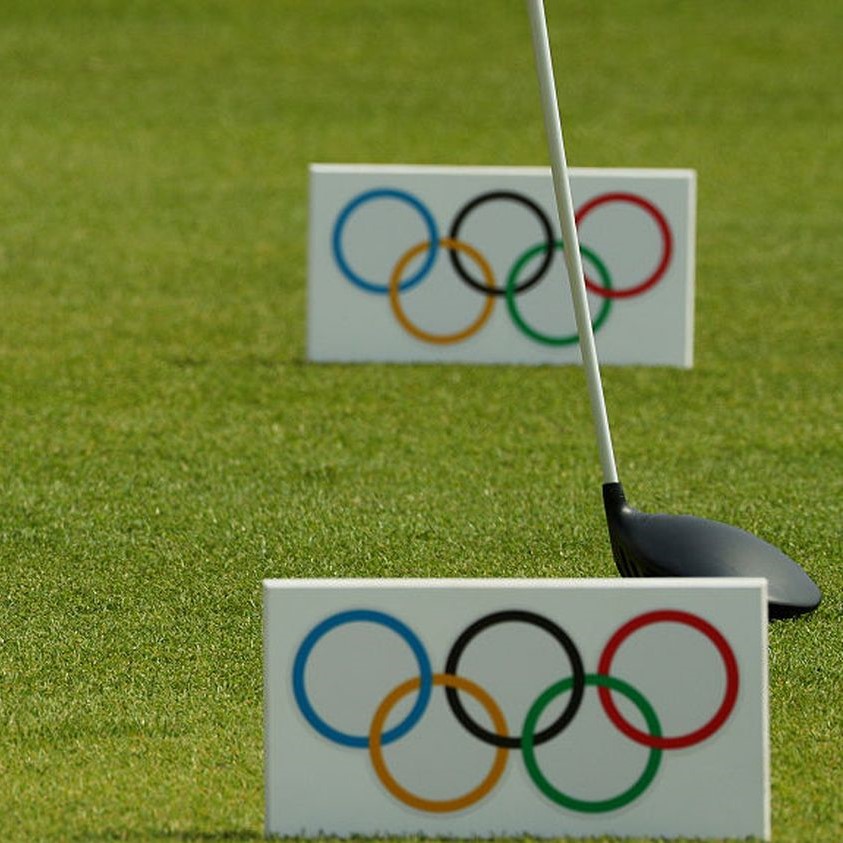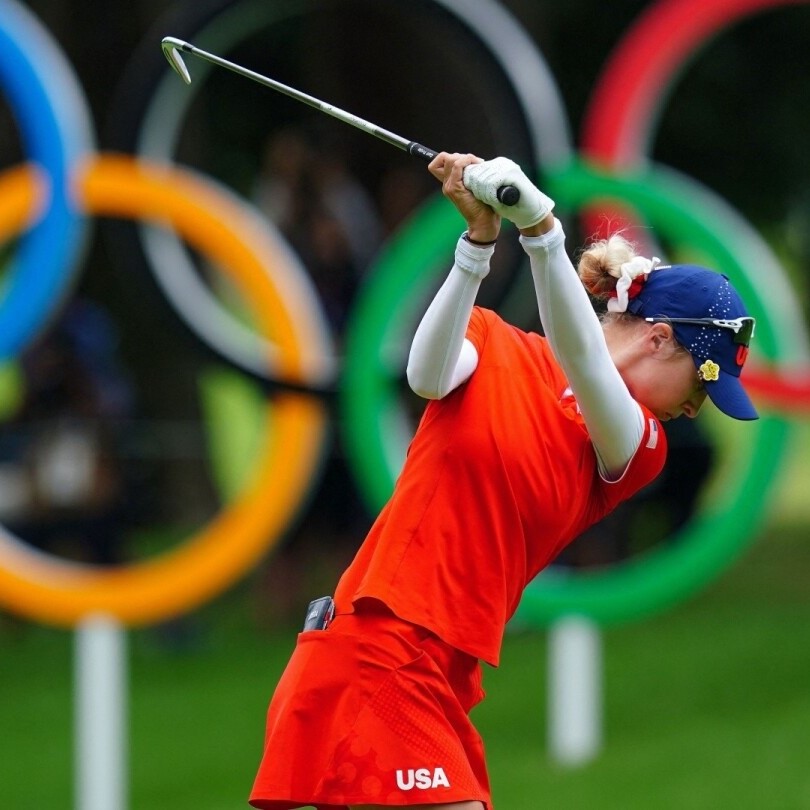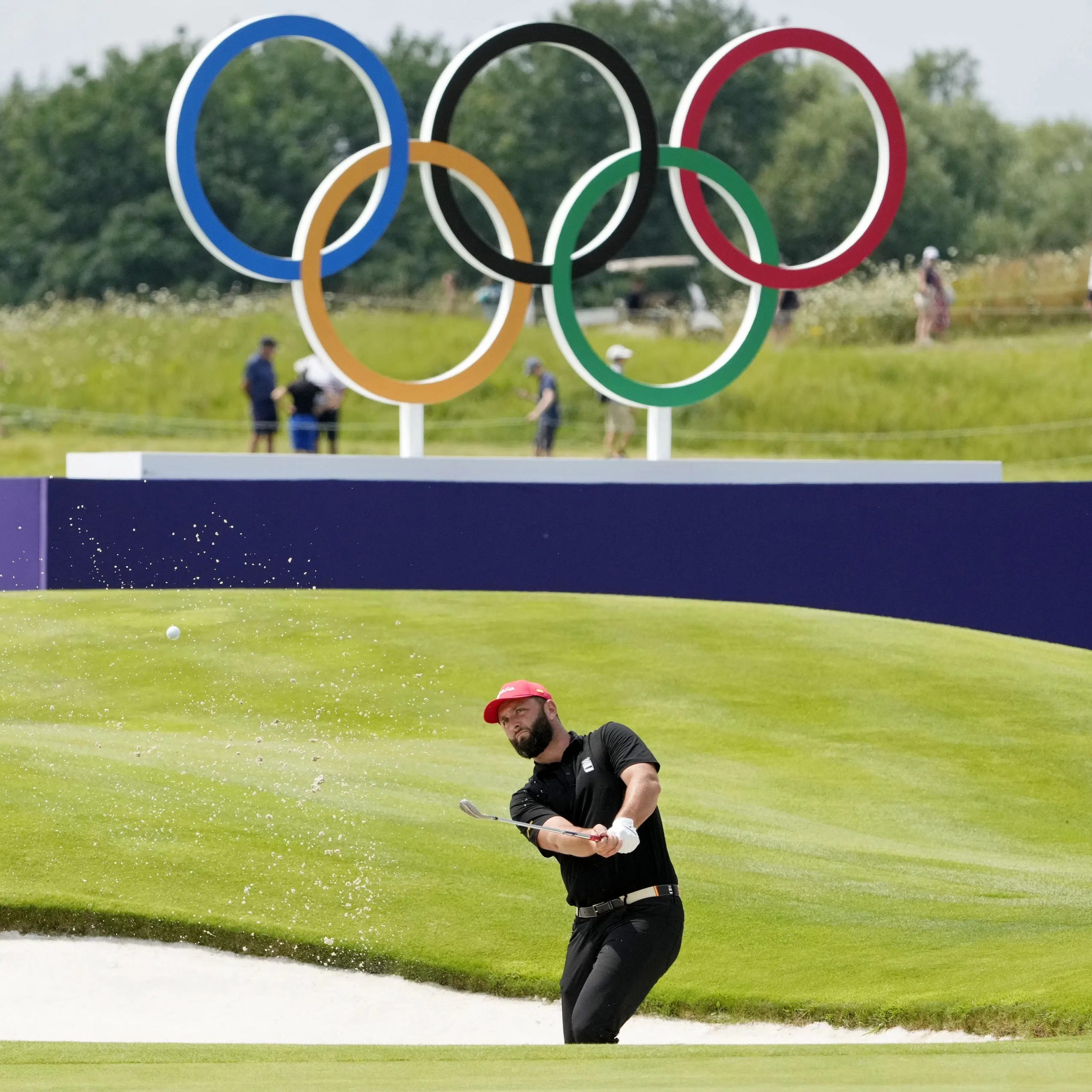Golf’s reintroduction to the Olympic Games has reignited global interest in the sport. Every Olympic cycle, enthusiasts eagerly await the Olympic golf results to see which athletes rise to glory and how the competition shapes the future of golf worldwide. This article provides an in-depth analysis of the most recent Olympic golf results, spotlighting standout performances, emerging talents, and the implications these outcomes have on the golfing landscape.
 The Return of Golf to the Olympic Stage
The Return of Golf to the Olympic Stage
A Historical Overview of Golf in the Olympics
Golf was first included in the Olympics in 1900 and 1904 but was then absent for over a century. Its absence ended when the International Olympic Committee reinstated the sport in 2016. This revival aimed to bring golf back to its roots as a premier global sport. The Olympic golf results from Rio de Janeiro in 2016 marked a significant moment, showcasing the world’s best golfers and setting high standards for future Games.
Reasons Behind Golf’s Olympic Revival
Several factors influenced the decision to bring golf back to the Olympics. Primarily, the sport enjoys widespread global participation and a strong professional presence. Additionally, the IOC sought to diversify the Olympic program by including sports that attract a broad international audience. The inclusion of golf has not only increased the sport’s visibility but also enhanced its appeal to younger audiences and new demographics.
Breaking Down the Latest Olympic Golf Results
Key Performances by Leading Golfers
In the latest Olympic golf results, established names made their mark. For men, Xander Schauffele delivered a stellar performance, demonstrating consistency and skill. His strategic play earned him a top spot, further cementing his reputation in the golfing world. On the women’s side, Inbee Park showcased her experience and precision, securing a commendable finish that highlights her enduring talent.
Emerging Stars Making Their Debut
The Olympic golf results also introduced us to promising new talent. Young golfers from countries with developing golf programs, such as Japan and Mexico, surprised many with their impressive performances. These emerging players are challenging the traditional powerhouses, indicating a shift towards a more competitive and diverse field in future competitions.
Memorable Moments and Record-Breaking Achievements
Every Olympic golf tournament brings unforgettable moments. From dramatic playoff finishes to record-breaking scores, the Olympic golf results often feature standout events that captivate fans. For example, a particularly tough course setup led to one of the closest finishes in Olympic history, illustrating the intense competition and high stakes involved.
 The Impact of Olympic Golf on the Professional Circuit
The Impact of Olympic Golf on the Professional Circuit
Shifts in World Rankings and Player Careers
Performance in the Olympics significantly influences world rankings. The Olympic golf results are integrated into the broader system that assesses player standings globally. A strong Olympic showing can elevate a golfer’s ranking, enhance their reputation, and open doors to lucrative sponsorships and endorsements. This impact underscores the importance of the Olympics in a golfer’s career trajectory.
Evolution of Training and Preparation Strategies
The prestige associated with Olympic success has led many golfers to refine their training methods. Coaches and players prioritize peak performance during the Olympic cycle, tailoring their preparation to meet the unique demands of the Games. Consequently, the Olympic golf results reflect not only individual talent but also the effectiveness of these advanced training strategies.
Economic Benefits for National Golf Programs
Successful performances in the Olympics often translate into increased funding and support for national golf programs. Governments and sporting bodies recognize the value of Olympic medals in promoting the sport. As a result, the Olympic golf results can influence the distribution of resources, fostering the development of golf infrastructure and nurturing emerging talent across various countries.
Technological Advancements Shaping Olympic Golf Results
Innovations in Golf Equipment and Training Tools
Technology plays a crucial role in enhancing golfer performance. Advances in golf equipment, such as high-tech clubs and personalized training aids, have a direct impact on the Olympic golf results. Additionally, the use of data analytics and video analysis allows athletes to fine-tune their techniques and strategies, contributing to better performances during the Games.
Enhanced Media Coverage and Broadcasting Techniques
The way Olympic golf is presented to audiences has evolved with technology. Extensive broadcast coverage ensures that the Olympic golf results reach millions of viewers worldwide. High-definition broadcasts, real-time statistics, and interactive features engage fans more deeply, making the sport more accessible and enjoyable to a global audience.
Virtual Reality and Increased Fan Interaction
Virtual reality (VR) technology has transformed fan experiences at the Olympics. Through VR, spectators can feel as though they are on the course, experiencing the competition up close. This innovation enhances the way fans interact with the Olympic golf results, providing immersive experiences that deepen their connection to the sport and its athletes.
Analyzing the Broader Implications
Influence on Global Golf Popularity
The Olympic golf results play a pivotal role in boosting the sport’s global appeal. Success stories from the Olympics inspire aspiring golfers and attract new fans. As the sport gains more visibility through the Olympics, its popularity continues to grow, leading to increased participation and interest worldwide.
Changes in Olympic Golf Formats and Future Competitions
The dynamic nature of the Olympics means that golf formats may evolve to enhance competition and viewer engagement. Based on past Olympic golf results and athlete feedback, potential changes could include introducing team events, mixed-gender competitions, or alternative scoring systems. These adjustments aim to keep the sport innovative and appealing to a diverse audience.
Long-Term Effects on Golf Development and Accessibility
The sustained success of golf in the Olympics has long-term benefits for the sport’s development. The Olympic golf results highlight the importance of accessibility and inclusivity in golf. Efforts to democratize the sport, making it more affordable and accessible, are likely to continue, ensuring a vibrant and competitive future for golf on the global stage.
 Spotlight on Notable Golf Results
Spotlight on Notable Golf Results
Men’s Competition: A Display of Precision and Strategy
In the men’s competition, the Olympic golf results revealed a blend of experience and youthful vigor. Veteran golfers leveraged their strategic understanding of the game, while younger players brought fresh perspectives and aggressive playstyles. This mix resulted in a highly competitive field where every shot counted, and the margin for error was minimal.
Women’s Competition: Excellence and Consistency
The women’s Olympic golf results showcased exceptional levels of excellence and consistency. Female golfers demonstrated remarkable control and composure under pressure, leading to thrilling finishes. The high level of competition among the women’s field highlights the depth of talent and the increasing parity in global women’s golf.
Mixed Team Events: Collaboration and Synergy
Introducing mixed team events in golf has added a new dimension to the Olympic Games. The Olympic golf results from these events emphasize the importance of collaboration and synergy between male and female golfers. These team competitions foster a sense of unity and collective achievement, enriching the overall Olympic experience.
The Psychological Aspect of Golf Results
Pressure and Performance: Coping with Olympic Stress
Competing in the Olympics introduces unique psychological challenges for golfers. The Olympic golf results often reflect how athletes manage stress and pressure. Mental resilience and the ability to stay focused are critical factors that determine success, highlighting the importance of psychological training alongside physical preparation.
The Role of Mental Toughness in Achieving Success
Mental toughness is a key component of achieving top Olympic golf results. Athletes who maintain their composure and adapt to changing conditions are more likely to perform well. Mental toughness enables golfers to navigate setbacks and sustain their performance throughout the demanding Olympic schedule.
Strategies for Enhancing Mental Performance
To excel in the Olympics, golfers employ various mental strategies. Visualization, mindfulness, and goal-setting techniques are commonly used to enhance focus and maintain a positive mindset. These strategies contribute to better performance and are often reflected in the Olympic golf results, where mental strength can be the deciding factor in closely contested matches.
The Role of Coaching and Support Teams in Olympic Success
Importance of Experienced Coaching Staff
Behind every successful golfer are experienced coaches who provide strategic guidance and technical advice. The Olympic golf results often highlight the impact of effective coaching on an athlete’s performance. Coaches play a vital role in preparing golfers for the unique challenges of the Olympic stage, contributing to their overall success.
Support Systems: From Physical Training to Emotional Support
Comprehensive support systems are essential for Olympic golfers. These systems encompass physical training, nutritional guidance, and emotional support, all of which are crucial for maintaining peak performance. The strength of these support networks is evident in the Olympic golf results, where well-supported athletes consistently deliver impressive performances.
Collaborative Efforts: Teams Behind the Scenes
The success seen in the Olympic golf results is a testament to the collaborative efforts of entire teams. From physiotherapists to sports psychologists, every member plays a role in an athlete’s journey. This teamwork ensures that golfers are well-prepared physically and mentally, enabling them to compete at their highest level during the Olympics.
 Analyzing Country-Specific Performance Trends
Analyzing Country-Specific Performance Trends
United States: Dominance and Depth in Golf
The United States has a rich history in Olympic golf, consistently producing top performers. The latest Olympic golf results reinforce the country’s dominance, highlighting the depth of talent and the strength of its golf programs. American golfers benefit from strong institutional support and access to excellent training facilities, contributing to their continued success on the Olympic stage.
South Korea: Precision and Consistency in Women’s Golf
South Korea has emerged as a powerhouse in women’s Olympic golf. The Olympic golf results reflect the country’s emphasis on precision and consistency, traits that South Korean golfers consistently exhibit. Rigorous training programs and a focus on technical excellence have propelled South Korean women to the forefront of the sport.
Europe: A Blend of Tradition and Innovation
European golfers bring a unique blend of traditional skills and innovative techniques to the Olympics. The Olympic golf results showcase how European talent balances established golfing traditions with modern strategies. Countries like Great Britain and Sweden have demonstrated their ability to compete fiercely, leveraging both experience and adaptability.
Emerging Nations: Rising Stars from Unlikely Places
The rise of golfers from emerging nations is one of the most exciting aspects of recent Olympic golf results. Countries such as Japan, Mexico, and South Korea (in men’s competitions) have produced talented golfers who challenge the established hierarchy. This trend indicates a more inclusive and competitive global golf landscape, where new nations can make their mark on the Olympic stage.
The Future of Olympic Golf: Expectations and Aspirations
Anticipated Changes in Olympic Golf Formats
Looking ahead, the Olympic golf results will likely influence potential changes in competition formats. Discussions are ongoing about introducing more team-based events or mixed-gender competitions to enhance the sport’s appeal and competitiveness. These changes aim to create a more dynamic and engaging Olympic golf experience for both athletes and fans.
The Role of Youth Development Programs
Youth development programs are crucial for sustaining the momentum generated by the Olympic golf results. Investing in junior golf initiatives ensures a steady pipeline of talent, preparing the next generation of golfers for future Olympic challenges. These programs focus on skill development, competitive exposure, and fostering a love for the game from an early age.
Enhancing Global Participation and Inclusivity
The future of Olympic golf depends on enhancing global participation and inclusivity. Efforts to make golf more accessible in diverse regions contribute to a more competitive and representative field. The Olympic golf results serve as inspiration for young athletes worldwide, encouraging broader participation and fostering a more inclusive golfing community.
The Significance of Golf Results Beyond the Games
Promoting Golf as a Global Sport
The Olympic golf results play a pivotal role in promoting golf as a global sport. Successful performances on the Olympic stage elevate the sport’s status, attracting new fans and participants. This global promotion helps bridge cultural and geographic divides, uniting people through their shared passion for golf.
Inspiring the Next Generation of Golfers
Olympic success stories inspire young athletes to pursue golf seriously. The Olympic golf results highlight the achievements of top players, serving as role models for aspiring golfers. This inspiration fosters increased interest and participation among youth, ensuring the sport’s continued growth and vitality.
Economic and Social Benefits for Host Cities
Hosting Olympic golf events brings economic and social benefits to host cities. The influx of visitors, increased tourism, and global media coverage associated with the Olympic golf results contribute to the local economy. Additionally, the spotlight on golf infrastructure and facilities can leave a lasting legacy, benefiting the community long after the Games have concluded.
 Conclusion
Conclusion
In summary, the Olympic golf results hold profound significance for athletes, national programs, and the global golfing community. These results not only celebrate individual excellence and emerging talent but also shape the future trajectory of the sport. By analyzing performances, understanding trends, and recognizing the broader implications, we gain valuable insights into how golf continues to evolve on the Olympic stage.
As golf cements its place within the Olympic tradition, the Olympic golf results will remain a key indicator of the sport’s progress and its ability to inspire greatness. The ongoing success and visibility of golf in the Olympics ensure that the sport remains dynamic, inclusive, and globally celebrated. Ultimately, these results are more than mere scores; they are a testament to golf’s enduring appeal and its capacity to unite athletes and fans from around the world in the spirit of competition and camaraderie.